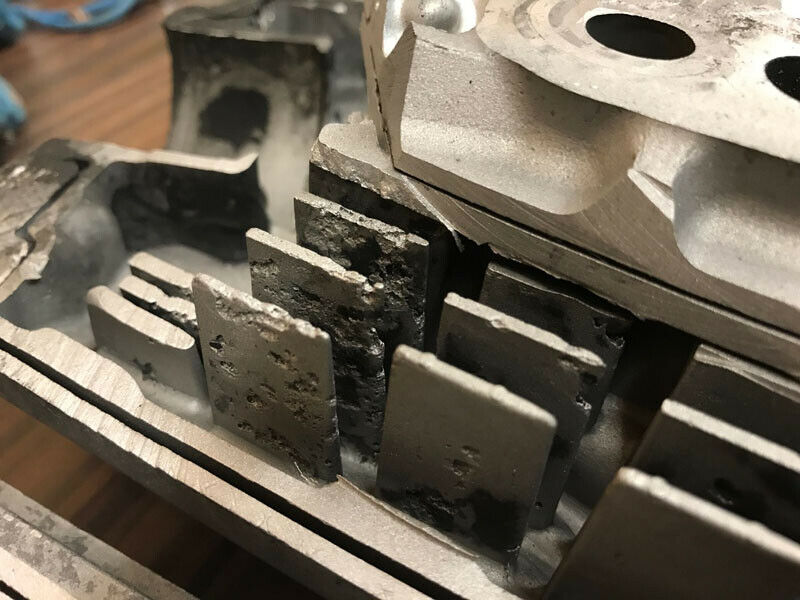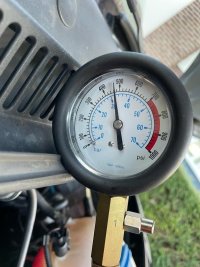A lot has been written on this and I've read it all. I thought it might be useful to try to summarise in one spot. I'll break this down into single statements and questions so it's easier to agree/disagree/answer. Please take a read and comment if you think any of this is incorrect.
1. The 204ps engine has a tendency to use a bit of oil. Not all examples, but apparently quite a few of them. This need not be a disaster. Just check your oil level from time to time and keep a litre of suitable oil in the back (after all, we've got plenty of space). 1 litre of oil per 10k miles seems pretty normal.
2. In some unfortunate instances, there is an issue with the EGR design that means some abrasive combustion by-products in the exhaust gas are allowed back into the engine via the EGR and can score the cylinders of the engine block. This can result in unacceptable oil consumption as oil can make it into the combustion chamber via these scratches in the cylinder walls. Worst case, this can require an engine replacement
3. Some people decide to 'delete' their EGR valve in order to remove the risk of engine block damage. Deletion involves physically removing and 'blanking' the valve itself and then updating the ECU programming so that it is unbothered by the lack of EGR signal. Mixed thoughts on this within the T6 community. Some worry it will result in MOT fails, others say it doesn't show up in an MOT test (provided the tester doesn't go looking for the mod).
Questions:
1. Local garages I have spoken to have said that the DPF must also be removed if the EGR is deleted. However, other people seem to say that this is not required and that the EGR can be deleted in isolation. Keen to hear of any experiences here either way
2. Could increased regularity of oil changes help here?
3. Do short journeys and driving at low revs exacerbate this problem (increased coking up of EGR)? I'm wondering if this would make a case for remapping a DSG gearbox.
1. The 204ps engine has a tendency to use a bit of oil. Not all examples, but apparently quite a few of them. This need not be a disaster. Just check your oil level from time to time and keep a litre of suitable oil in the back (after all, we've got plenty of space). 1 litre of oil per 10k miles seems pretty normal.
2. In some unfortunate instances, there is an issue with the EGR design that means some abrasive combustion by-products in the exhaust gas are allowed back into the engine via the EGR and can score the cylinders of the engine block. This can result in unacceptable oil consumption as oil can make it into the combustion chamber via these scratches in the cylinder walls. Worst case, this can require an engine replacement
3. Some people decide to 'delete' their EGR valve in order to remove the risk of engine block damage. Deletion involves physically removing and 'blanking' the valve itself and then updating the ECU programming so that it is unbothered by the lack of EGR signal. Mixed thoughts on this within the T6 community. Some worry it will result in MOT fails, others say it doesn't show up in an MOT test (provided the tester doesn't go looking for the mod).
Questions:
1. Local garages I have spoken to have said that the DPF must also be removed if the EGR is deleted. However, other people seem to say that this is not required and that the EGR can be deleted in isolation. Keen to hear of any experiences here either way
2. Could increased regularity of oil changes help here?
3. Do short journeys and driving at low revs exacerbate this problem (increased coking up of EGR)? I'm wondering if this would make a case for remapping a DSG gearbox.



